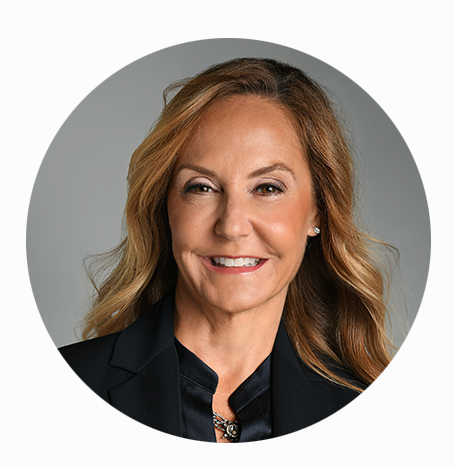Lara Schmoisman 0:02
Hi, everyone, welcome back to coffee number five, my coffee’s ready warm. And today I was thinking about my company. And you know, we talk about this so many times, but still growing pains are hard. I remember growing actually had a knee pain, and I always thought, oh my god never gonna go away. And it did. And I think the same happens with the company, when you’re growing, you need to adapt, many things that you thought they’re gonna grow in one direction, they grow in a different direction, or some things that you thought, this is a way of going to handle them. You realize, maybe I should change my mind, because it’s very different. Even though I came from a family of entrepreneurs and business owners, and I was raised with that mentality, always working for others, there were a lot of things that I didn’t have to think about. So today, I want to give you a little bit of this, and a little bit of that, but I want to bring an expert. And so let’s welcome Alisa Cohn. Did I pronounce that right? You did. Thank you so much. Welcome. And I’m so happy that we’re having some coffee together. And actually, I think today’s my coffee number five, for real good for you. I’m so honest, that you wrote the book, wonderful book call from startup to grown up on this is, it’s fascinating to me, because there’s a hole in between, from startup to grown up. So how do you get from point A to point B?
Alisa Cohn 1:38
Well, first of all, thank you for having me on your show. And thanks for sharing some coffee with me. And thanks for kind words in my book. And I think the answer is personal growth. If you want to get from A to B, if you want to get from startup to grown up as it as I talk about in my book, from startup to grown up? The answer is that you need to recognize that you have elements of yourself that need to grow up and those elements fall into what I call three categories, managing you managing them, and managing the business and all those dimensions, you need to think about how do i Who do I need to be? And how do I grow personally, in order to meet the needs of the moment,
Lara Schmoisman 2:17
that for me, let me tell you, one of my struggles growing a company was like, of course, I’m the CEO and the founder of my company, I’m the one that is responsible to pay people and to grow the company. But at the same time, I’m responsible for the relationship I want to have for my team. The team culture, for me is something that is very important. I come from places that there was a very toxic thing culture. So for me, I always say that I design my team culture, before I had the company, of course, I had to adjust some things as I was going and growing. And also I realized that, but and we have a very strong team culture, but my relationship with the team, I had to realize that I could be a boss, but also I can have fun with them. That it respect doesn’t start for you being the boss, you need to earn. And you need to show that you’re the one who knows and roll your sleeves and once in a while and and show your team that you’re working alongside with them. But there’s a reason why you’re a leader.
Alisa Cohn 3:25
Yeah, I love what you just said. And I think it’s so important to really think intentionally about the culture. Because if you don’t think intentionally about the culture, then your culture will be what just happens. So that’s number one. And you’re doing that really well. And then also, to your point about knowing people, there’s a lot of things around how you build credibility as a leader. First of all, you absolutely have to be able to do the job and at times, get in there with them in order to show that camaraderie. Second of all, you absolutely have to build rapport with your people and care about them, and share laughs and share light moments with them. So that they can see you as a human and you can relate to them as human beings, then they will perform for you when the chips are down. And that is the holy grail of leadership.
Lara Schmoisman 4:07
And also is there’s no shame about caring for them. For them as people. Yes. Always try to find my moments. Because I remember working in in certain companies that people didn’t even know that I had two kids. Yeah, they didn’t care. So I always try to find Tamela with about you, even if they’re your answer. Okay, what are your parents? So tell me where you come from who you are as a human being? Do you have siblings? Or if someone is sick? It doesn’t make me less of a leader to send them a text. I hear you okay.
Alisa Cohn 4:41
Yeah, exactly right. And it makes you more of a leader to citizens in the text and say, Hey, are you okay? Because it showcases what people really need, which is they know the leaders care about them.
Lara Schmoisman 4:51
Yeah, and honestly, I mean, I always say I have the best team in the world. And but because we create that culture, we I mean, I recently and this is something I encourage, and I would love to your input about this, I always say that I want everyone in my team to be a future leader. Like, for example, if you’re we’re interviewing a new graphic designer, you will go through HR, but everyone in the team in the signers, they need to approve that new member.
Alisa Cohn 5:22
Yeah, well, I think in terms of choosing a leader, and it always depends on, you know, what is the context whether or not you give people a choice about their new leader, but one way or the other, what’s very helpful is to be transparent. So I’m going to bring a new viewer into the situation. And either I’m going to get your input, or I’m not going to get your input, but you’ll be able to meet this person. And my commitment to you is this person will be someone you can respect and that will you can learn from and grow from.
Lara Schmoisman 5:50
And even if you’re not a leader, if it’s going to be a team member, where you work in a collaborative and Martin Vironment, so I think that the team needs to meet them, and and say, Yes, I feel like this person could be a good fit for us.
Alisa Cohn 6:04
Yes, on the one hand, I think that’s true. And on the other hand, I think it’s even equally important to have an analytical hiring process, so that everybody knows what they’re looking for. Because if you don’t, aren’t clear with what the actual characteristics of the jobs to be done, that you’re looking for, what happens is people can say, Oh, I liked her, or Oh, I didn’t like him. And really liking is important. But actually, did you like her? Because she’ll go soft on you? Did you like her? Because she’s a lot like you. And actually, what we need on this team is someone who’s different from you. So I think it’s important to dig deeper beyond, do I feel like I can work with this person? Can I build rapport with this person? I think it’s important to really be clear, what are you looking for this person to do? And can have they shown?
Lara Schmoisman 6:51
You feel like this person can be the one who leads a team is this person, the one who can help you grow as a person and as a professional, and definitely in leaders? So let’s go back to their growing up. So we again, we were talking about the in betweens, what, and I see a lot of companies struggling and even falling in that growing up that they can not managing the growing up, because many times they need to take care of Westerners, so they stop pursuing growth.
Alisa Cohn 7:26
Yeah, I think that’s true. And I think that’s very sad. And it’s also it’s just a problem. It’s a limiting factor for leaders, if they won’t grow themselves professionally. And personally, then unfortunately, they have a limit to themselves and how they can lead the company. But it is true that growth and development are competing with just the critical business needs. So all leaders need to figure out how they’re going to carve out time to make sure they’re, as Stephen Covey would say, sharpening the saw getting better about the business itself and not just working in the business.
Lara Schmoisman 7:59
So how do you go grow a business and at the same time manage your business?
Alisa Cohn 8:03
Well, I think it’s about really being clear what your top priorities are. Because I think for leaders, they get involved in things. And certainly entrepreneurs get involved with things that somebody else should be doing. So it’s about really being clear about my
Lara Schmoisman 8:14
god, I like to you need to be invited. I agree with your so much as you know, I I see it all day, every day with my clients or prospective clients, are they trying to do it yourself marketing, instead of realizing my time is more it’s worth it more doing something else than, than doing an Instagram post?
Alisa Cohn 8:35
Yeah. So for all entrepreneurs, and all founders and CEOs and all leaders, you need to really get clear, what are your top priorities? And what are the things that only you can do? And then you’ve got to rigorously figure out how to delegate and give away other things. It’s super important. If you don’t have someone to take on those things, then then you need to find someone. That’s super important. And that’s how you do it all. So quote, unquote, do it all. Because not growing, and not continuing to build your skills and to build your ability to lead in terms of your inner your inner life. I promise you has an expiration date, and bleeders and founders don’t want an expiration
Lara Schmoisman 9:17
date. And that’s where you also can get burnt out because right after doing it all is doing nothing at the same time. Definitely 100% I realized and that’s what I’m always putting me as an as an example because I don’t use like to use other people. But I remember when I started growing the agency I got at some point to say I needed some part part time, hop EDM make necessarily sense economically at the time. But it makes sense in that I’m so glad I did it. Because otherwise I knew that then I wouldn’t be able to grow more agency by the end of hell.
Alisa Cohn 9:56
Yeah, on the one hand, it doesn’t make sense economically in that mode. When you realize that if you don’t start building up the capacity, then it doesn’t make sense economically because you ultimately will be able to carry on by yourself, you must, Lee, you must bring other people into the business and be able to train them up so that you can grow.
Lara Schmoisman 10:14
This is something I always tell everyone who asked me is I invest in my team. That’s my trick for growth. So I have I always, not at full capacity of my team, I always make sure that they can take more, because otherwise I cannot grow. I will stay there.
Alisa Cohn 10:34
Yeah, that’s a great strategy. And that’s so important. And also, I would ask you, how do you invest in your team? Like, what do you what are the things that you do with your team that helps them grow personally, and professionally?
Lara Schmoisman 10:46
We do several things. As you know, I’m a former professor. So I’m known for stopping even the whole agency and give a class if I think that they are something is weak, or a group of people that say, Hey, there’s this confusion. I love that when you’re an educator, you’re always an educator, and I believe, something that I didn’t have in my career to having mentors. I feel like I was in the entertainment industry. I was in the art industry, and it’s always super competitive, and nobody gives you nothing for free.
Alisa Cohn 11:19
I think it’s I think it’s true. It’s in many, many industries. And I think the importance of mentors cannot be overstated. I love that you’re an educator, I love it, you’ll just stop at the drop of a hat and hold a class. I love that even a discussion group about, huh. Delegation around here needs to get better. How do we together think about that meetings around here need to get better? How do we together think about that, that is very powerful. And everybody should be finding mentors internally, externally, not one mentor, multiple mentors, because that’s how you grow.
Lara Schmoisman 11:49
Yeah. And also something else that I learned is like, come on, I’ve been working for over 30 years now. And so I have, I know what I know. And I keep learning every day. But also it can learn from anyone. And I feel that because I’ve been doing this for so long, I know so much. There is things that are missing. So for each client, for example, something we do every month is that we hold something that we call a blue sky, and they will use sky is where everyone in the team puts involving that account comes in, we get the data, but also I want to hear what everyone thinks that we can do better.
Alisa Cohn 12:28
That’s amazing. I love that process. And not only does it help you all share information, but it helps you just know each other better have some laughs together. And that goes back to what we talked about earlier, which is building team culture,
Lara Schmoisman 12:39
absolutely. But also is building team trust. Because it’s not only about me, I have a large team, I have a team of 30 people. And it’s not about me working with individuals in the team, it’s about them, knowing that they have someone else in the team that they support, that if they send something to a designer, the design will be done with the specification that it was given.
Alisa Cohn 13:00
I love it beautifully said.
Lara Schmoisman 13:03
So Elisa, let me ask you, because I we’re talking more about me than you? And coach? Yes, you are. And, and so coaching, because I we get again, we talk with so many entrepreneurs, so many business owners that they don’t know where to scale up? And how I mean, they are they have a great idea. And then how do you go? They are? How do you know that I need funding? Or I can do this myself? It’s your there’s so many people that they try to do it all? So how do you analyze and how you make decisions? Or what part you can do it all yourself and what you need to validate?
Alisa Cohn 13:46
Well, I think you know, it’s it’s an ongoing process. It’s an ongoing art, not a science. And I think it’s important to recognize that whatever you decide, first of all, most founders don’t delegate it first they do everything themselves, and then you realize you can’t live that way you have to start hiring people and delegating and I think it’s a bit about re you know, sort of asking yourself and re enrolling yourself in pushing yourself on what I need to delegate more pushing yourself past your comfort zone about what’s possible for you to try to give away and to also recognize one of the things which can be done 80% correctly. Good enough is good enough. And one of the things that must be done by you because they need the sort of the love and attention of a founder. So those are the things that those are the ways you think about what you can delegate and what you have to maintain yourself.
Lara Schmoisman 14:41
I think that’s a wonderful advice wonderful violence well so if people want to read your book where can we find it?
Alisa Cohn 14:48
Oh, well thank you so much. You can find it on Amazon and I’ll we’re all we’re all books are sold and I also have a podcast also called from startup to grownup where I interview founders on their purse. To know journeys about moving from founder to leader
Lara Schmoisman 15:04
amazing thank you so much for being here Alisa really enjoyed this conversation
Alisa Cohn 15:09
thank you so much I really appreciate you having me








